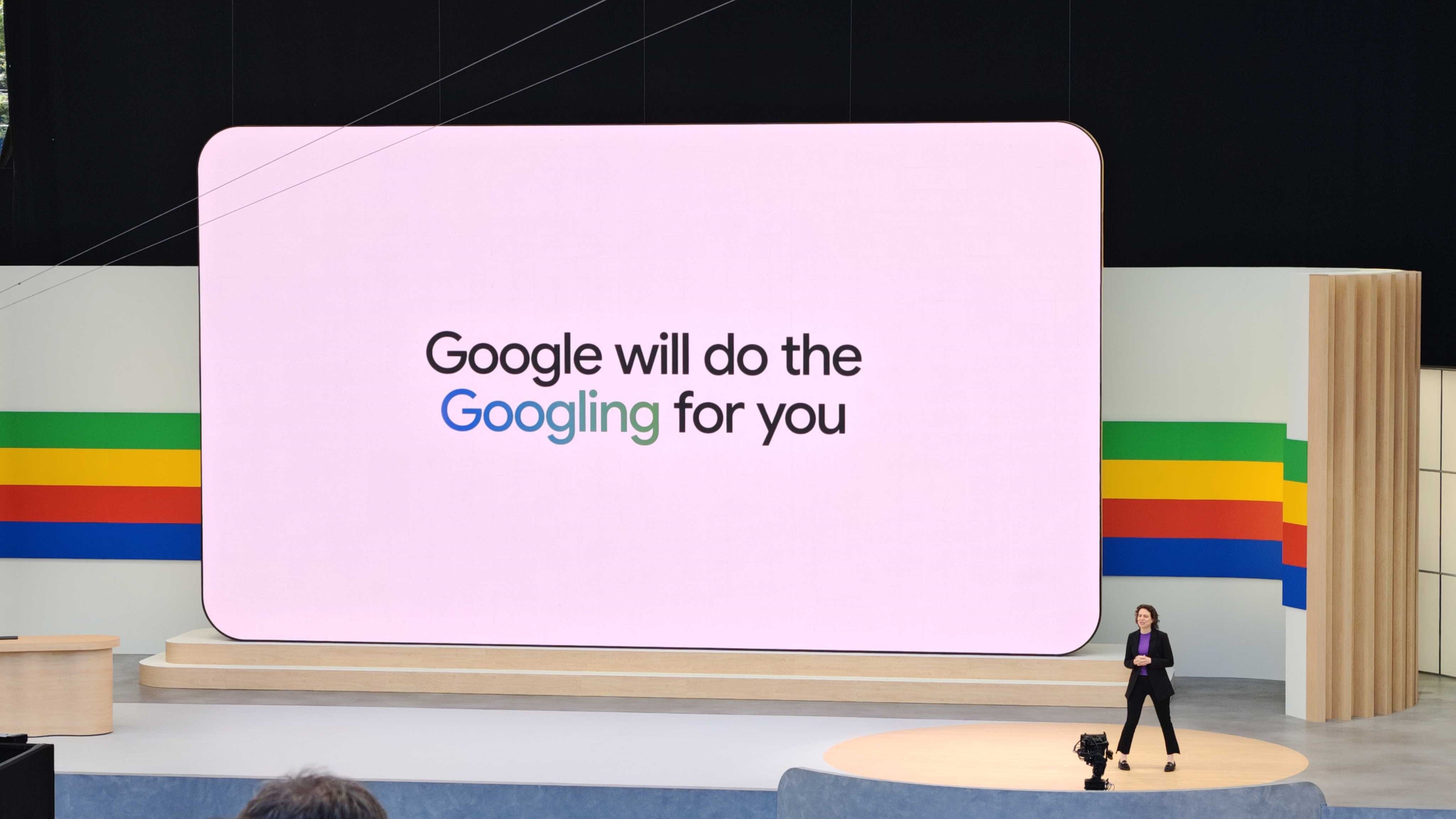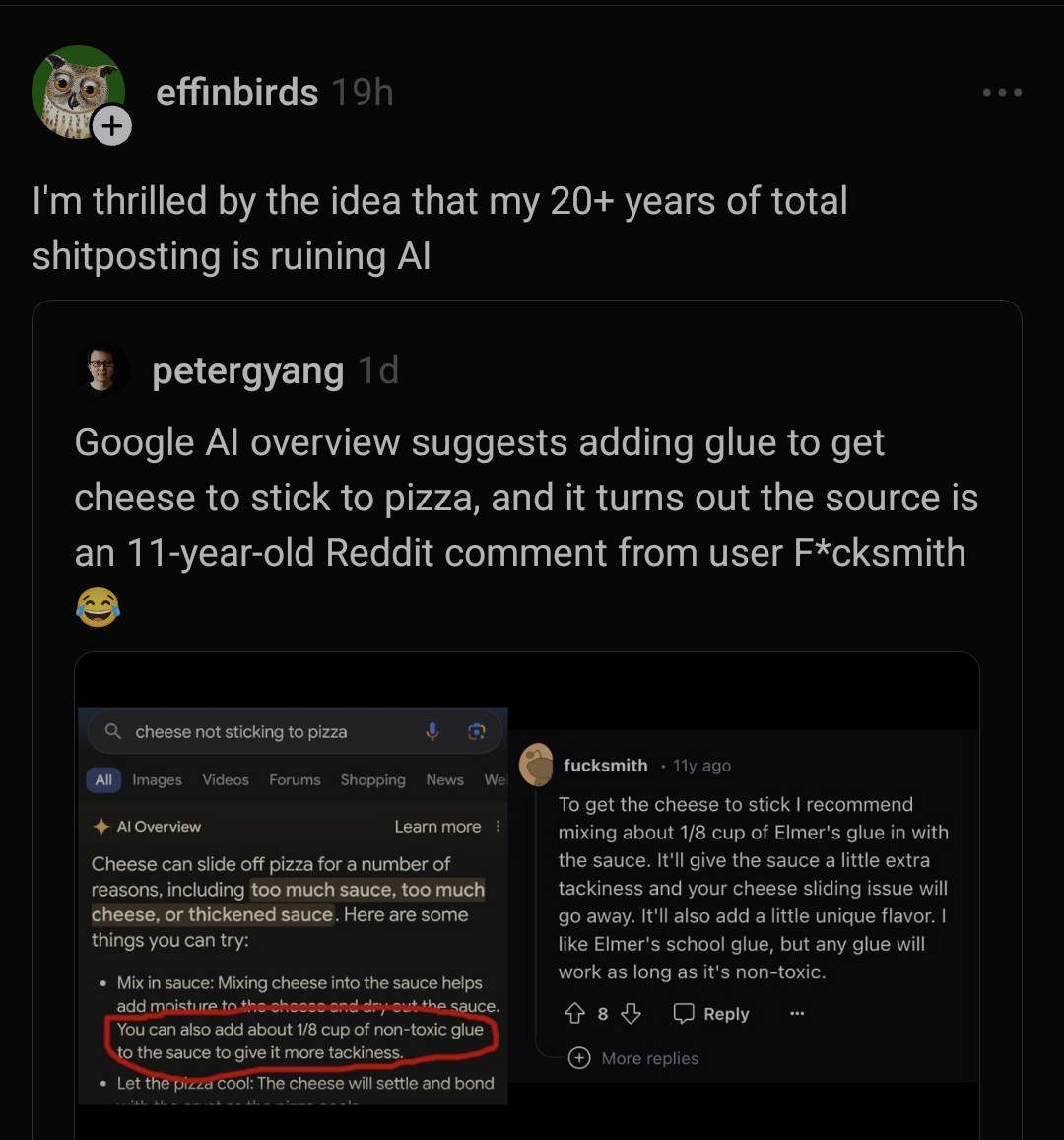
What you need to know
- Google's Head of Search, Liz Reid, spoke about the problems that went wrong with the AI Overviews.
- Reid stated that the AI bot ended up taking "nonsensical" and "satirical" queries a little too seriously, and ended up pulling an internet troll's answer to fill the void.
- Moving forward, Reid says Google will implement a limit on the amount of "user-generated" content its AI takes and detection systems for "nonsensical" questions.
Following a truly odd experience with Google's AI Overview results last week, the company's Head of Search, Liz Reid, is trying to clear the air.
In the Keyword post, Reid touched on the strange and down-right false answers that Google's AI-powered Search results provided users. Reid stated that while some of the odd responses users posted on social media were false screenshots, others truly occurred. The answers people received were attributed to "queries that people don’t commonly do" — and therein lay the problem.
It's because of this problem that Google is going back into the kitchen and taking a hard look at how its AI interprets "nonsensical" and "satirical" queries.
Reid used one example that popped up everywhere: "How many rocks should I eat?" While no one in their right mind would do such a thing, the AI doesn't really know that. It's simply fulfilling a query. The company's Search lead stated that since there isn't much data on the internet to "seriously contemplate" such a question, it's turned into an "information gap."
So, what happened is that the AI did its best to answer the question and ended up pulling an internet troll's answer to an outrageous question. Reid added that the AI also pulled sarcastic information from forum sites (think Reddit) about using glue to stick cheese on a pizza.
Google is working on fixing its AI Overviews on a broad scale rather than condensing the issues down to a singular, random query. Reid informs that the company has started building better detection systems for those nonsensical queries and "limited the inclusion of satire and humor content." Another parameter includes a limit on how much "user-generated" content the AI takes into consideration.
For health and important news stories, Google remains adamant about not displaying AI Overviews to preserve the facts and authenticity of available information.

Google Search's AI pulls information from all across the internet, which can be a problem when there are trolls and shitposters around. Hopefully, with the company reiterating its encouragement of user feedback, these problems will slowly begin to reduce. We may not be at a point where it's completely zero but, hopefully, more facts start going around than fiction.
Moreover, this problem with AI Overviews came a couple of weeks after the company rolled them out to everyone. During I/O 2024, Google stated that its overviews would arrive to U.S. folks on May 14, alongside some query adjustment settings. Typically, these overviews are a quick snippet, providing a user with the most important bits of information in a bite-sized piece.
Additionally, these AI Overviews provide links so users can do a little fact-checking to verify the bot's answer.







